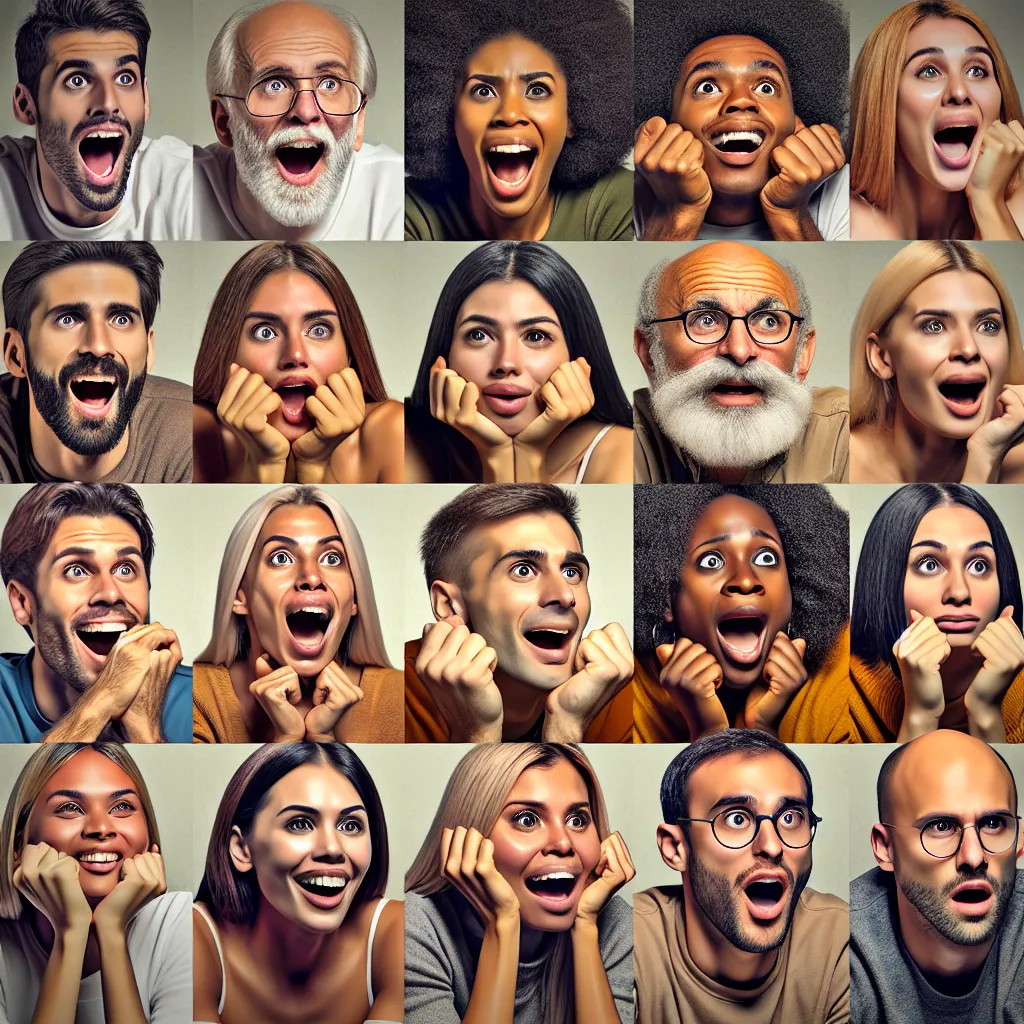The Influence of Reality TV on Body Image and Self-Esteem
Reality TV has become a prominent form of entertainment, shaping the perceptions and behaviors of its viewers. One significant impact of reality TV on society is its influence on body image and self-esteem. Many reality shows emphasize physical appearance and promote unrealistic beauty standards, which can lead to negative effects on viewers.
Research has shown that frequent exposure to idealized bodies on reality TV can contribute to body dissatisfaction and lower self-esteem, especially among young audiences. Viewers may compare themselves to the edited and curated images of reality TV stars, leading to feelings of inadequacy and insecurity about their own bodies.
Furthermore, the portrayal of extreme weight loss, cosmetic surgeries, and intense physical transformations on reality TV can perpetuate unhealthy body image ideals. This can create a distorted perception of beauty and lead to harmful behaviors such as extreme dieting or seeking unattainable standards of physical perfection.
It is important for viewers to critically analyze the messages presented in reality TV and recognize the difference between scripted entertainment and real life. Media literacy and promoting diverse body representation in the media can help mitigate the negative impact of reality TV on body image and self-esteem.
In conclusion, the influence of reality TV on body image and self-esteem cannot be overlooked. As the media landscape continues to evolve, it is crucial to raise awareness about the potential effects of reality TV and advocate for more responsible and inclusive representation of body image in the media.
Reality TV’s Effect on Social Interactions and Relationships
Reality TV has become a pervasive form of entertainment in today’s society, with shows like “The Bachelor,” “Survivor,” and “Keeping Up with the Kardashians” dominating the airwaves. While these shows may offer entertainment value, they also have a significant impact on social interactions and relationships.
One of the most noticeable effects of reality TV on social interactions is the phenomenon of “parasocial relationships.” Viewers often develop one-sided relationships with the participants on these shows, feeling emotionally invested in their lives and experiences. This can lead to a blurring of boundaries between reality and fiction, potentially affecting the way individuals form and maintain real-life relationships.
Furthermore, reality TV often portrays exaggerated and dramatized versions of interpersonal conflicts, leading viewers to believe that such behavior is acceptable or even desirable. This can have a detrimental effect on real-life relationships, as people may emulate the confrontational and argumentative behavior they see on screen, rather than practicing healthy communication and conflict resolution.
In addition, the emphasis on competition and drama in reality TV can foster a sense of mistrust and suspicion in real-life social interactions. Viewers may become more suspicious of others’ motives and actions, as they are subconsciously influenced by the constant portrayal of backstabbing and deceit on reality shows.
In conclusion, reality TV has a tangible impact on social interactions and relationships, influencing viewers’ perceptions and behaviors in their everyday lives. It is important for individuals to critically evaluate the messages conveyed by reality TV and to actively foster positive and healthy social interactions based on genuine communication and respect.
Consumerism and Materialism on Reality TV: A Societal Impact
Consumerism and materialism are pervasive themes in reality TV, impacting society in both subtle and overt ways. The glorification of wealth, luxury, and excess on reality TV shows has led to the normalization and even the celebration of a materialistic lifestyle. Viewers are bombarded with images of opulent mansions, flashy cars, and extravagant shopping sprees, creating an aspirational culture centered around conspicuous consumption.
This continual exposure to materialistic ideals on reality TV has contributed to the shaping of societal values and priorities. The emphasis on owning the latest designer items, living in grandeur, and constantly pursuing more possessions has intensified the culture of consumerism. Viewers often find themselves caught in a cycle of desire and acquisition, influenced by the scripted drama and enviable lifestyles portrayed on screen.
Moreover, reality TV often features product placements and endorsements, subtly encouraging audiences to equate possessions with success and happiness. This commercialization of content reinforces the link between material wealth and personal fulfillment, perpetuating the belief that one’s worth is determined by their possessions. Consequently, this fosters a society where the pursuit of material wealth is prioritized over ethical considerations and meaningful experiences.
In conclusion, the pervasive consumerist and materialistic narrative prevalent in reality TV has significantly impacted society, molding attitudes towards wealth, possessions, and societal status. As viewers internalize these values, it becomes crucial to critically analyze the implications of the content consumed and strive for a healthier balance between material aspirations and genuine personal fulfillment.
Ethics and Morality in Reality TV: Shaping Societal Values
Reality TV has become a pervasive part of modern society, influencing the values and beliefs of its viewers. The ethics and morality portrayed in reality TV shows have a significant impact on shaping societal values. While some argue that reality TV reflects the true nature of human behavior, others contend that it often promotes unethical and immoral conduct for the sake of entertainment.
One of the key concerns surrounding reality TV is the potential normalization of unethical behavior. Contestants are often placed in competitive and high-stress situations, leading to the display of behaviors that may not align with ethical standards. Moreover, the emphasis on dramatic storylines and conflict in reality TV can lead to the glorification of dishonesty, manipulation, and betrayal as acceptable means to achieve success.
Furthermore, the portrayal of relationships and interpersonal dynamics in reality TV can perpetuate unhealthy and morally questionable attitudes. Viewers may internalize the idea that sensationalizing personal conflicts, engaging in aggressive confrontations, and exploiting emotional vulnerabilities are acceptable or expected behaviors in relationships.
It is crucial to recognize the significant influence reality TV exerts on societal values and to critically examine the ethical and moral implications of its content. While some shows strive to uphold ethical standards and promote positive values, there remains a responsibility to scrutinize the impact of reality TV on shaping the moral compass of society.
In conclusion, reality TV plays a substantial role in shaping societal values, often raising ethical and moral concerns. As viewers consume this content, they must engage in thoughtful analysis and reflection to discern the impact of reality TV on their own ethical and moral frameworks. Recognizing the potential influence of reality TV on societal values is essential in promoting a conscious and responsible media consumption culture.
Reality TV and Political Engagement: A Changing Society
Reality TV has become an influential force in shaping modern society, and its impact extends beyond simply entertainment. One of the notable aspects of this influence is its effect on political engagement and the changing dynamics of society. The pervasive nature of reality TV has significantly altered the way individuals interact with politics and social issues, leading to both positive and negative outcomes.
One of the ways in which reality TV has influenced political engagement is through the portrayal of political figures and their actions. These shows often depict political processes and personalities, offering a behind-the-scenes look at the workings of government and political decision-making. As a result, viewers are exposed to the complexities of political systems in a more accessible and engaging format, potentially increasing interest and awareness of political issues.
Furthermore, reality TV has the potential to shape public perception of political figures and institutions. The dramatization and sensationalism inherent in reality TV can lead to a distorted view of politics, with an emphasis on entertainment value rather than factual representation. This blurring of lines between reality and scripted content can have a detrimental effect on the public’s understanding of political realities, potentially leading to misinformed opinions and attitudes.
Moreover, the interactive nature of reality TV, such as voting for contestants or participating in interactive segments, has the potential to translate into increased engagement in political processes. Viewers accustomed to participating in TV show competitions may be more inclined to take part in voting for political elections or engaging in civic activities. This transfer of engagement from entertainment to political arenas represents a shift in societal behavior influenced by reality TV.
In conclusion, reality TV’s impact on political engagement and societal changes is undeniable. While it has the potential to increase awareness and interest in political issues, it also carries the risk of distorting reality and fostering a culture of shallow engagement. As society evolves, it is crucial to recognize and critically evaluate the implications of reality TV on political awareness and civic participation.



